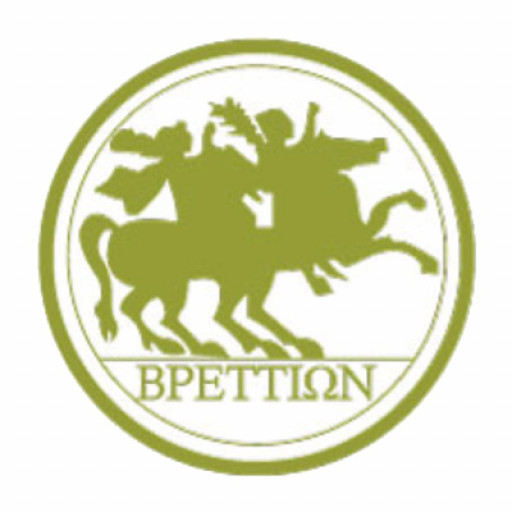Description
This course is designed for those interested in our relationship with and management of animals in a rapidly changing world. The course has three specialist majors focusing on: 1) livestock production; 2) wildlife management; and 3) horses and dogs.
Students will study the basic sciences and applied biological sciences before undertaking specialist units. The course also develops practical skills.
The Livestock Production major has streams enabling specialisation in sheep and wool science, animal health and nutrition, animal genetics, intensive animal production and consulting and advisory services.
The Canine and Equine major is suited to students with interests in companion animals. Students will learn the fundamentals of animal nutrition, physiology, genetics and human-animal interactions before specialising in their chosen fields. Students in this major will be well placed for a career in the petfood industry, detector dog agencies, canine control and the equine and racehorse industries.
The Wildlife Management major is designed for students seeking a career in the management and conservation of wildlife or management of feral animals, ecological basis for the stable, threatened and nuisance status of animal species together with theoretical and practical skills in animal nutrition, reproduction, genetics breeding, health and welfare are covered.
The program includes four units of equine related study from the University of Queensland which is completed from UNE on a cross-institutional basis.
Detailed Course Facts
Application deadline You are advised to apply as early as possible Tuition fee- EUR 14770 Year (EEA)
- EUR 14770 Year (National)
Duration full-time 48 months Languages Take an IELTS test
- English
Course Content
Course Aims
The aim of this course is to teach students the principles behind the production and management of animals. The majors specialise in either domesticated, companion or wild animals.
Learning Outcomes
Upon completion of this course, students will be able to:
Graduate Attributes
Knowledge of a Discipline
The Bachelor of Animal Science embeds itself within the wider agricultural disciplines and shows how animals interact and relate to their environment from cellular to ecological levels. Students will receive knowledge from lectures on CDs and on Blackboard. They will learn knowledge by direct experience in practicals and field excursions. Especially in later years they will be encouraged to read the primary literature. Knowledge will be assessed in examinations in most units and in essays and reports.
Communication Skills
Communication of information may include essays, literature reviews, practical reports and/or reports on small projects. Students will be given some advice on how to write these, and they will be assessed. In some units, they will also present oral reports on topics or projects.
Global Perspectives
Most characteristics of major animal groups are universal, although some Australian animals have peculiarities in anatomy, physiology, ecology or behaviour. There will be an emphasis on general patterns in most units, but some will especially focus on Australian animals.
Information Literacy
Students will be assessed on their skills in obtaining appropriate information for the written assignments, using books, journals and on-line sources. There will be significant use of electronic media, especially the scientific literature. In addition, most units will provide teaching and practice in simple and occasionally moderately complex statistical analysis.
Life-Long Learning
The education received in this course will allow students to continue learning about animals from their own observations, reading and other media. Students will develop a range of life-long learning skills such as how to seek out new information and critically analysing such information. Learning to work both independently and cooperatively with others is an important skill to develop. This course will stimulate students' intellectual curiosity and creativity. Grant-writing skills will prepare students for preparing realistic goals, planning effective time use and budgeting for research activities.
Problem Solving
There will be a strong emphasis on careful observation and recording. This leads to generation of hypotheses, which can ultimately be tested. During the practical sessions and projects, students will be instructed in, and practice, the obtaining of relevant skills in approaching problems/tasks, deciding what sort of information is needed, getting that information and then applying it appropriately. Problem solving skills will be assessed in the written assignments and discussions.
Social Responsibility
Two major issues that will receive some attention are the need to conserve the earth's biodiversity, of which animals are a most conspicuous part and the need to treat animals with respect - animal welfare.
Team Work
Some practical assignments and field activities may involve groups of a few students collaborating to collect data. Also projects may be conducted by small groups of students.
English Language Requirements
IELTS band : 6 TOEFL iBT® test : 79
To study at this university, you have to speak English. We advice you to
take an IELTS test. More About IELTSRequirements
A candidate shall be qualified for admission (see Admission Rule Undergraduate Policy).
International students must meet the University's English language requirements.
Assumed knowledge is Mathematics.
Recommended studies: Biology and/or Chemistry.
For students without the recommended background knowledge, the Faculty offers a Foundation unit in Chemistry and Mathematics.
Work Experience
No work experience is required.
Want to improve your English level for admission?
Prepare for the program requirements with English Online by the British Council.
- ✔️ Flexible study schedule
- ✔️ Experienced teachers
- ✔️ Certificate upon completion
📘 Recommended for students with an IELTS level of 6.0 or below.
Related Scholarships*
- Academic Excellence Scholarship
"The Academic Excellence Scholarship can provide up to a 50 % reduction in tuition per semester. These scholarships will be renewed if the student maintains superior academic performance during each semester of their 3-year Bachelor programme. The scholarship will be directly applied to the student’s tuition fees."
- Alumni Study Travel Fund
Scholarships for students who are already attending the University of Reading.
- Amsterdam Merit Scholarships
The University of Amsterdam aims to attract the world’s brightest students to its international classrooms. Outstanding students from outside the European Economic Area can apply for an Amsterdam Merit Scholarship.
* The scholarships shown on this page are suggestions first and foremost. They could be offered by other organisations than University of New England.










